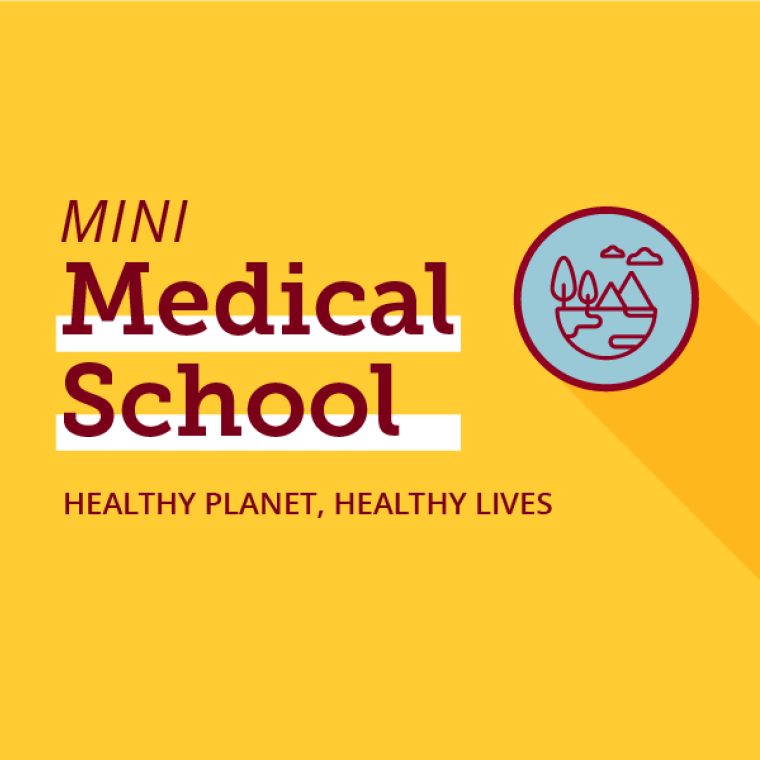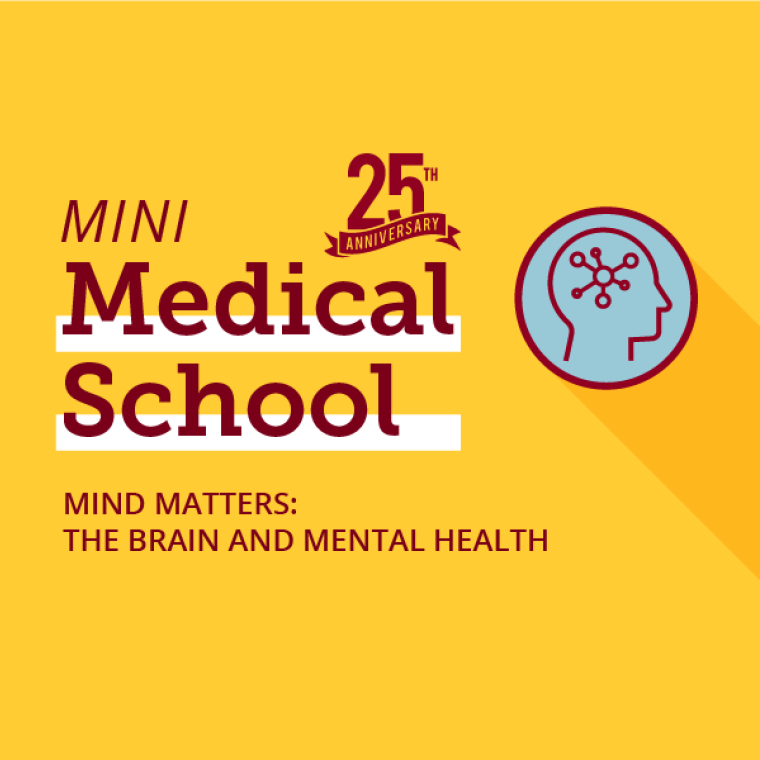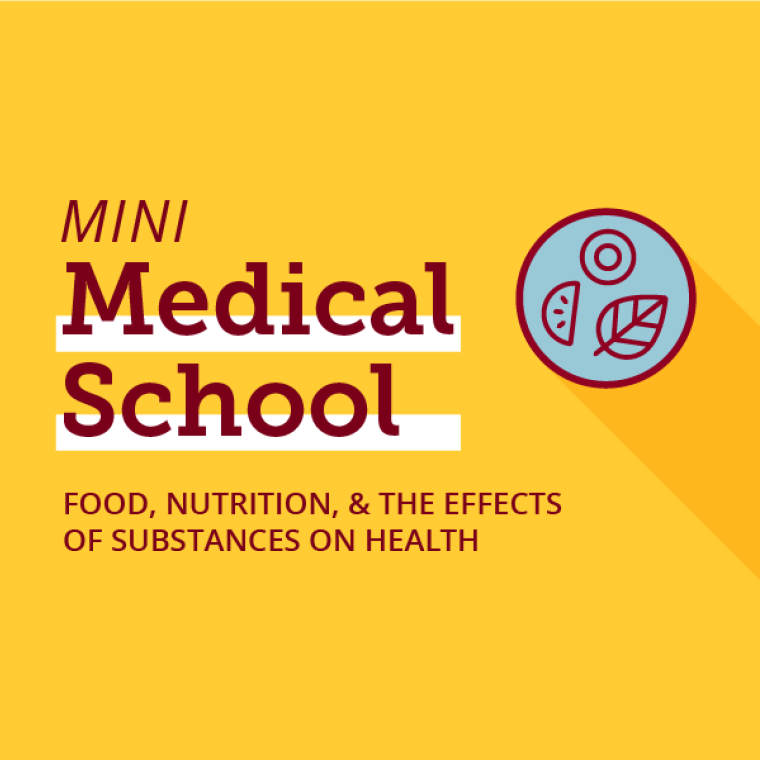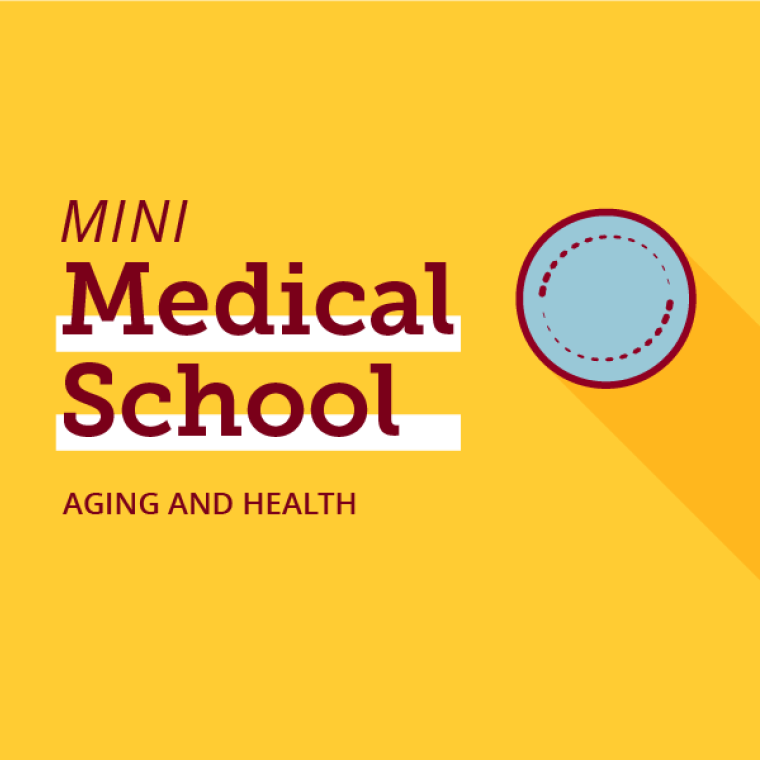Healthy Planet, Healthy Lives
Did you know higher levels of air pollution have been correlated with increased incidence of Alzheimer’s disease, and that extremes of flooding and drought impact food production? Environmental changes disproportionately impact the least wealthy and most vulnerable across the planet, increasing existing inequities in health.
Healthy Planet, Healthy Lives explores the ways in which the health of our planet is inextricably tied to the health of all life on Earth.
About Mini Medical School
Mini Medical School offers a unique glimpse into the health sciences at the University of Minnesota. Community learners with a shared interest in health embark on a journey examining the scientific foundations of health and disease. Presented using common language for ease of understanding complex topics, your guides are internationally renowned experts who are shaping the way health care is delivered locally and globally.
Join Email List
Stay connected and learn about Mini Medical School events
Contact:
[email protected]
Human disruptions to Earth’s natural systems impact not only human health, but all life on Earth. During this session, you’ll learn about planetary health, the effect on local communities, and rebuilding relationships with the natural world.
Q&A
How Do We Incorporate Planetary Health in Health Care?
How Can Rural Communities Affect Planetary Health?
Why Should We be Optimistic About Planetary Health?
How are Humans Connected to the Natural World?
What Role Does Nature Play in Improving my Health?
What is the Connection Between Rural Health and Alzheimer's and Dementia?
What Can Health Care Systems do to Improve Planetary Health?
What Preventive Measures Can We Take to Protect Planetary Health?
What is the Most Pressing Issue in Planetary Health?
What is One Area We Can Focus on to Improve Planetary Health
Speakers

Moderator:
Tseganesh Selameab, MD
Medical School

Josh Fergen, PhD
Memory Keepers Medical Discovery Team

Misty Wilkie, PhD, RN, FAAN
School of Nursing

Teddie Potter, PhD, RN, FAAN, FNAP
School of Nursing
Now that we have a better understanding of human impact on the environment and its effect in turn on our health, what are ways we can help? In this session you’ll learn about local and global health efforts at the intersection of humans, animals and the changing environment.
Q&A
How Can Communities Start their Own Sustainable Energy and Community Resiliency Program?
When is the Best Time to Build Connections to Nature?
How can we Build Connections to Nature?
Are Electric Vehicles a "Fad"?
Are there Still Benefits to Using Biofuels?
Can we Integrate Technology into Nature?
How Can We Better Understand Complex Planetary Health Concepts in Order to Motivate Change?
Speakers

Moderator:
Tseganesh Selameab, MD
Medical School

Michael Reese
West Central Research and Outreach Center
College of Food, Agricultural and Natural Resource Sciences

Cathy Jordan, PhD
Institute on the Environment
Medical School

Katey Pelican, DVM, PhD
Dept. of Veterinary Population Medicine
College of Veterinary Medicine
There is hope that we can change our current trajectory. See the discussion on inspiring the next generation of sustainable leaders, and building a future for all life on Earth.
Q&A
Speakers

Moderator:
Tseganesh Selameab, MD
Medical School

Lee Frelich, PhD
Dept. of Forest Resources
College of Food, Agricultural and Natural Resource Sciences

Clement Loo, MA, PhD
Sustainable Leaders for the Future Program
University of Minnesota, Morris

Heidi Roop, MS, PhD
Dept. of Soil, Water, and Climate
College of Food, Agricultural and Natural Resource Sciences



